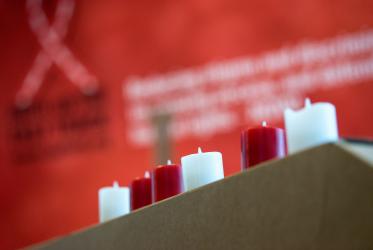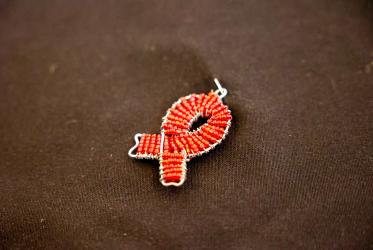In Cameroon, adolescents and young people ages 15-24 partly account for high new HIV infections, which largely occur through unprotected sexual intercourse. This current HIV prevalence among youth may compromise the present and future development of this country.
In response to this challenge, a workshop was organized by the World Council of Churches Ecumenical HIV and AIDS Initiatives and Advocacy (WCC-EHAIA) from 7-9 June at the Presbyterian Church of Cameroon in Buea. Thirty youth from Presbyterian, Catholic, Baptist and Apostolic churches enrolled in the workshop, seeking a “safe space” where they, as church youth, could challenge and question sexual and gender-based violence, and critically reflect on harmful gender norms.
Participants reported on incidents of violence that occurred in their constituencies within the last three months. They discovered that the root causes of these violent incidents included negative cultural aspects of gender norms, religion abuse, gender inequality, poverty and negative law systems that benefit mainly men and boys. The consequences of this sexual and gender-based violence included trauma, divorce, HIV infections and death.
The lessons drawn from the presentations portrayed the goodness for youth of exercising patience in life especially for sex, mutual understanding in relationships, and parental love to improve care towards children. In addition, the participants were given the task to reflect on what it means to be a “real man” and a “real woman” in Cameroon from the perspective of the general population.
Youth explored how they may be heavily influenced by traditional and unequal gender norms that prevail in their own communities.
Hendrew Lusey, WCC-EHAIA regional coordinator for Central Africa, offered a message of hope to participants, discussing how gender-equitable men respect all women, challenge other men to join the cause, liberate female partners from negative exposures, believe that women and men were created in God’s image, treat women with dignity, and refrain from being sexist.
By the conclusion of the workshop, the participants drafted plans on HIV-related issues that they would address in their respective churches. A follow-up workshop is planned for next year to find out the process, results and implications on gender norms and HIV prevention.








